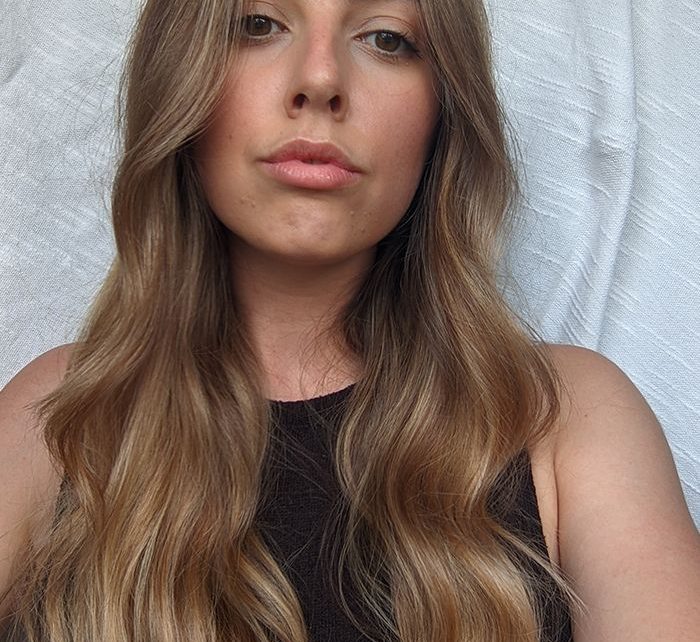As a beauty editor, I don’t admit my beauty faults often. I follow a strict skincare regimen morning and night (I have never slept in my makeup), I religiously treat my hair to masks, and I wouldn’t dream of stepping out of the bath without slathering my skin in lotion immediately afterwards. However, when it comes to applying my makeup, it’s as though my esteemed beauty journalist title means nothing.
I work with makeup artists day in, day out and have spent many hours of my life absorbing every tip and trick they swear by. And while I do retain the information and apply it to my work, when it comes to my own makeup routine, it’s like all of their valuable information has gone in one ear and out the other.
It’s not that I don’t know what I should be doing, but rather I can’t be bothered to do it. Makeup takes time, and I am an incredibly impatient person. I just want to look my best in as little time as possible.
Look, I’ll admit I’m no makeup master, but what I have done is manage to nail a makeup routine that works for me. I am sure that some of my favourite makeup experts are hanging their heads in shame for what I’m about to do, but here are the six makeup rules I purposely ignore (and think it actually sort of works).
I’ll admit that my eyebrows are naturally dark and full, and I do totally understand not everyone’s brows are this way, so please take this rule-breaking with a pinch of salt.
I don’t fill or shape my eyebrows. And when I say shape, I don’t just mean with pencil—I’m talking plucking, threading and waxing, too. You see, I like my makeup to look natural and effortless, and whenever my brows are perfectly shaped, I just feel as though my entire look is too “done.” Every time I sit in a makeup chair, I basically have to wrestle the tweezers off the makeup artist. They assure me that everything will look better if I just pluck a few stragglers and that doing so won’t affect my overall shape. But I disagree.
On the rare few times I have gotten my brows threaded, I have found myself reaching for pencils daily in a bid to fill in gaps and bulk them out again. It’s time-consuming makeup application that I simply didn’t ask for. Instead, I have found that letting my brows do their unruly thing and spending approximately five seconds dragging a fixing gel through them in the morning works just fine.
Is this the ultimate makeup sin? If it is, then count me a sinner. Yes, I almost always buy my foundation a shade darker than my actual skin tone. I’m naturally pale, and my skin is yellow-toned, so I am forever looking for ways to add some bronzy warmth to my complexion. I have tried virtually every makeup trick under the sun in a bid to get the slightly warmer look my skin craves, and nothing has worked better for me than going a foundation shade darker. The trick, I have found, is to not go too dark and only do this with medium-coverage, glowy formulas—you need to be able to blend it expertly.
My lips are dry, so please forgive me for not wanting to coat my entire lips in pigment that only exacerbates peeling. I know makeup artists say a lip liner is the single best way to keep your lipstick in place all day long and create the illusion of a fuller pout, but I just can’t get on board with it. In fact, I’d rather wear no colour on my lips at all than reach for a liner.
Instead, I look for lipsticks that are balm-like and easy to apply. I use products with a hydrating sheen that help plump and hydrate lips in order to treat the issue, rather than mask it.
Going back to my ongoing need for bronzed, glowy skin, it’s also worth knowing that I massively “overapply” my bronzer. While I know that experts would call it overapplication, I think it’s just right. Makeup artists talk about lightly dusting bronzer onto the high points of your face, where the sun would naturally hit, but my approach is much more “swirl the brush around and rub it all over.”
Okay, I might be exaggerating a little bit, but I do apply far more than is recommended. Using a big, fluffy brush, I use a matte powder and dust it heavy-handedly into my hairline, down to my temple, under my cheekbones and along my jawline. Oh, and across my nose, too. Basically, the only places on my face not touched with bronzer are the apples of my cheeks. And I’m not entirely sure why I leave them out, to be honest.
For years, beauty editors were taught that blusher is a make-or-break product. Makeup artists told us that blusher lost its charm as a product because people simply didn’t know how to apply it. Well, I’m going to let you in on a little secret: I’ve been doing this job for nearly seven years, blush is back, and I still don’t know what people deem to be the correct way to apply it. But still, that doesn’t stop me from applying a ton of the stuff.
I understand that going in heavy with highly pigmented powder blushers might leave you looking like Coco the Clown, but the truth is most modern-day blushers are pretty foolproof. To avoid any blusher disasters, I always opt for cream products or sheer powders that can be built up and layered. I apply to the apples of my cheeks (and far more than most makeup artists would say to), and I feel like it’s the perfect way to get a fresh, glowy look.
A makeup trick that has been drilled into me by experts over the years is that opting for a lighter concealer under the eyes will help brighten the area and diminish the look of dark circles. While this might be true if you’re a makeup artist with an expert hand, applying concealer a shade or two lighter than my actual skin tone just leaves me looking as though I’ve picked up the wrong product and, frankly, a little weird.
I have incessant dark circles and have found that, actually, the best way to cover them up is by opting for a concealer that is either colour-matched to my foundation or has an apricot tint. Using concealers that have an orange tone helps to counteract the purple hue of dark circles and actually looks far more natural on the skin.
Next up, the only seven makeup trends we plan on wearing this spring/summer.




